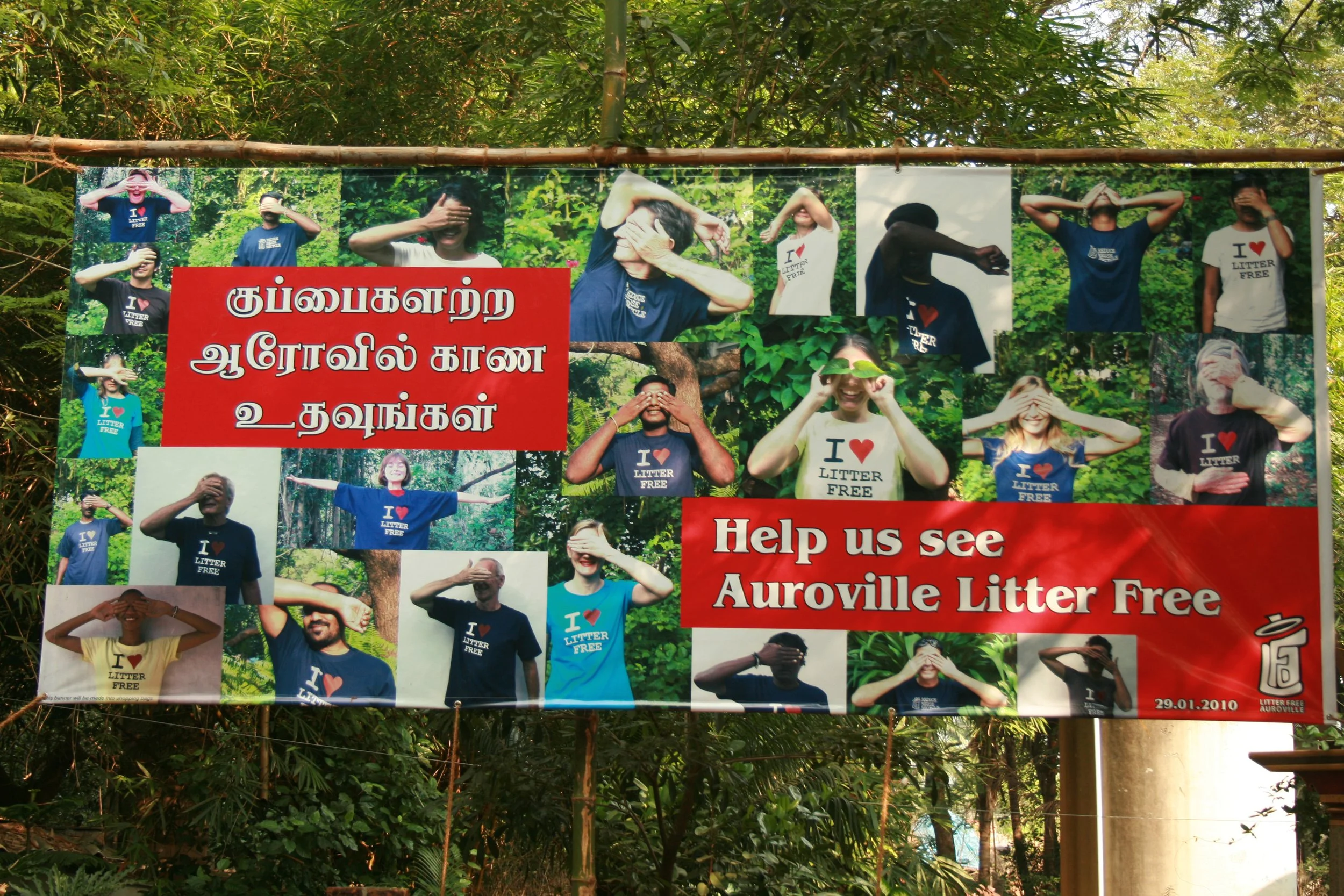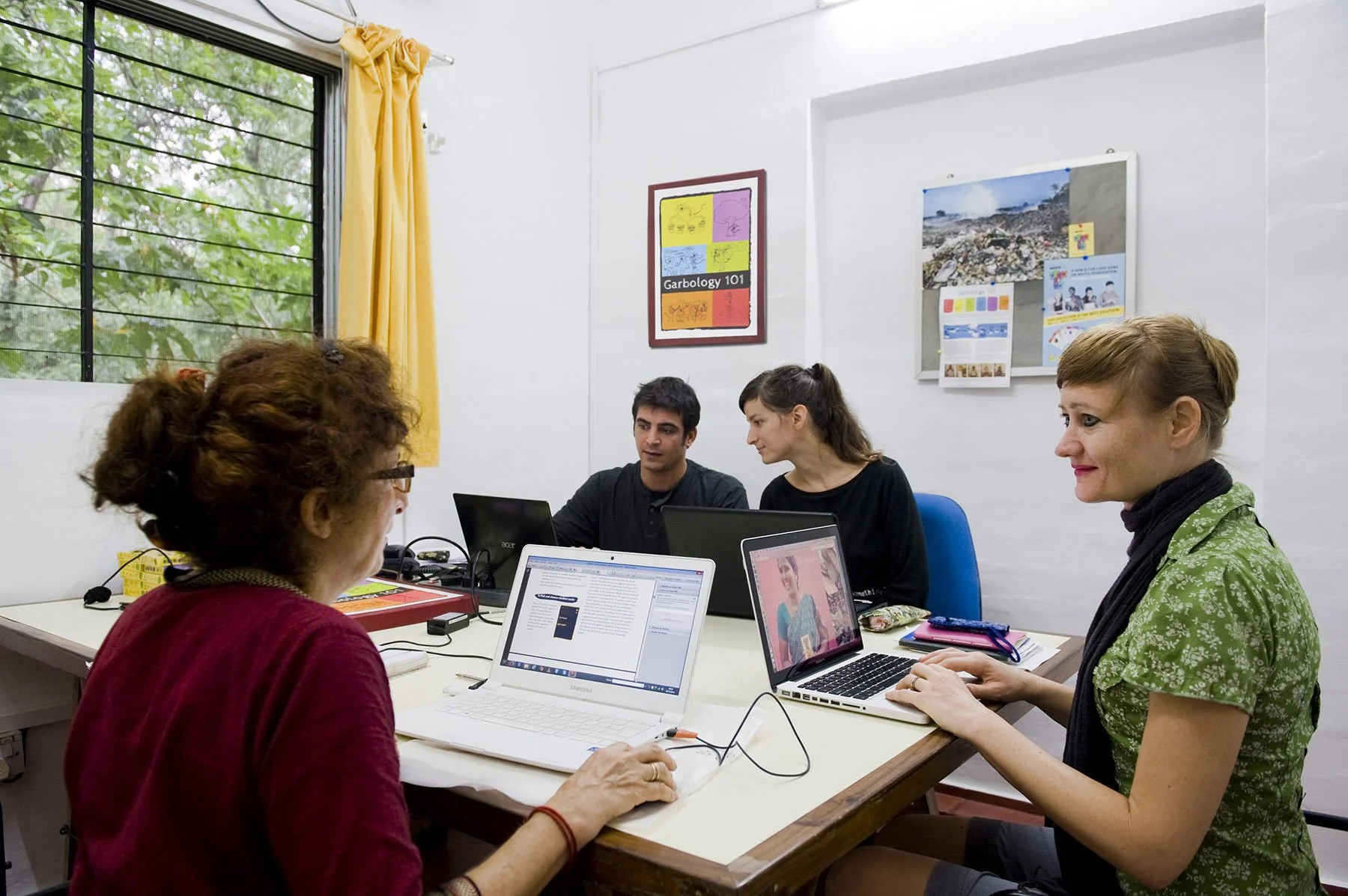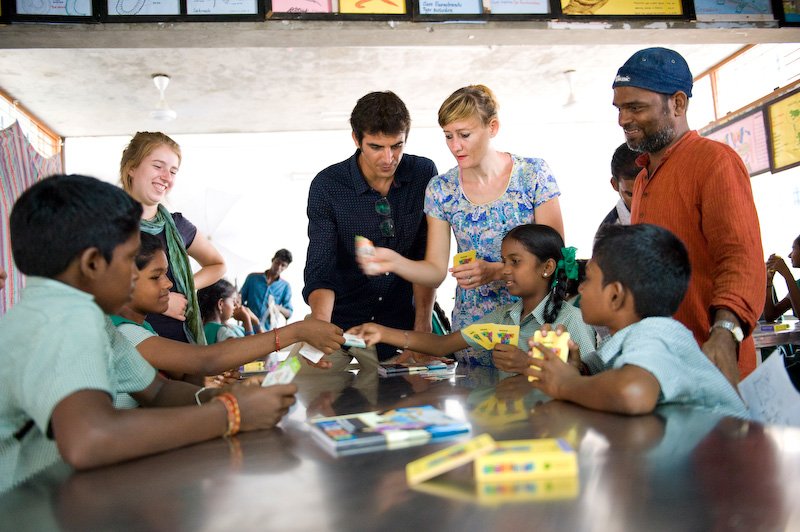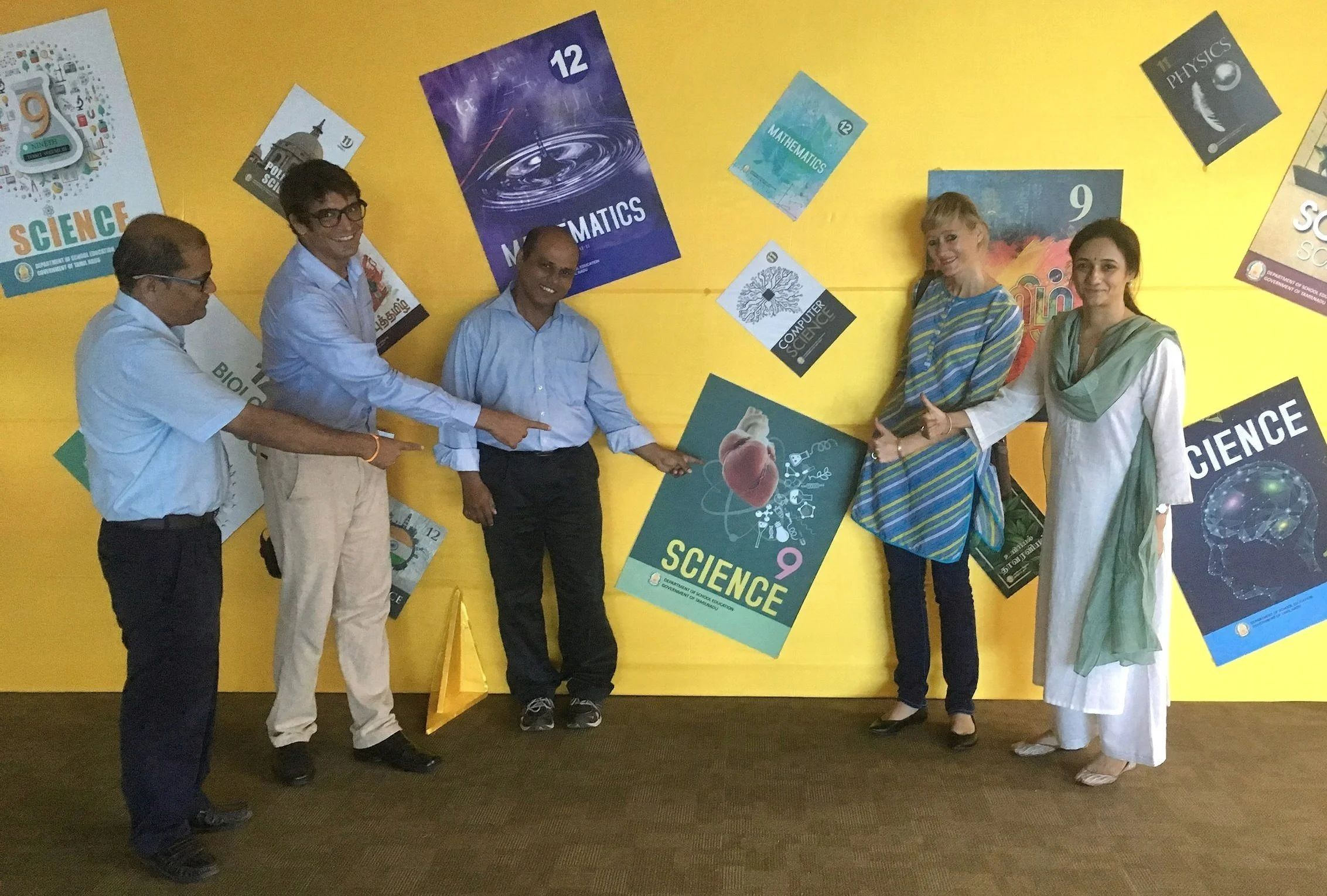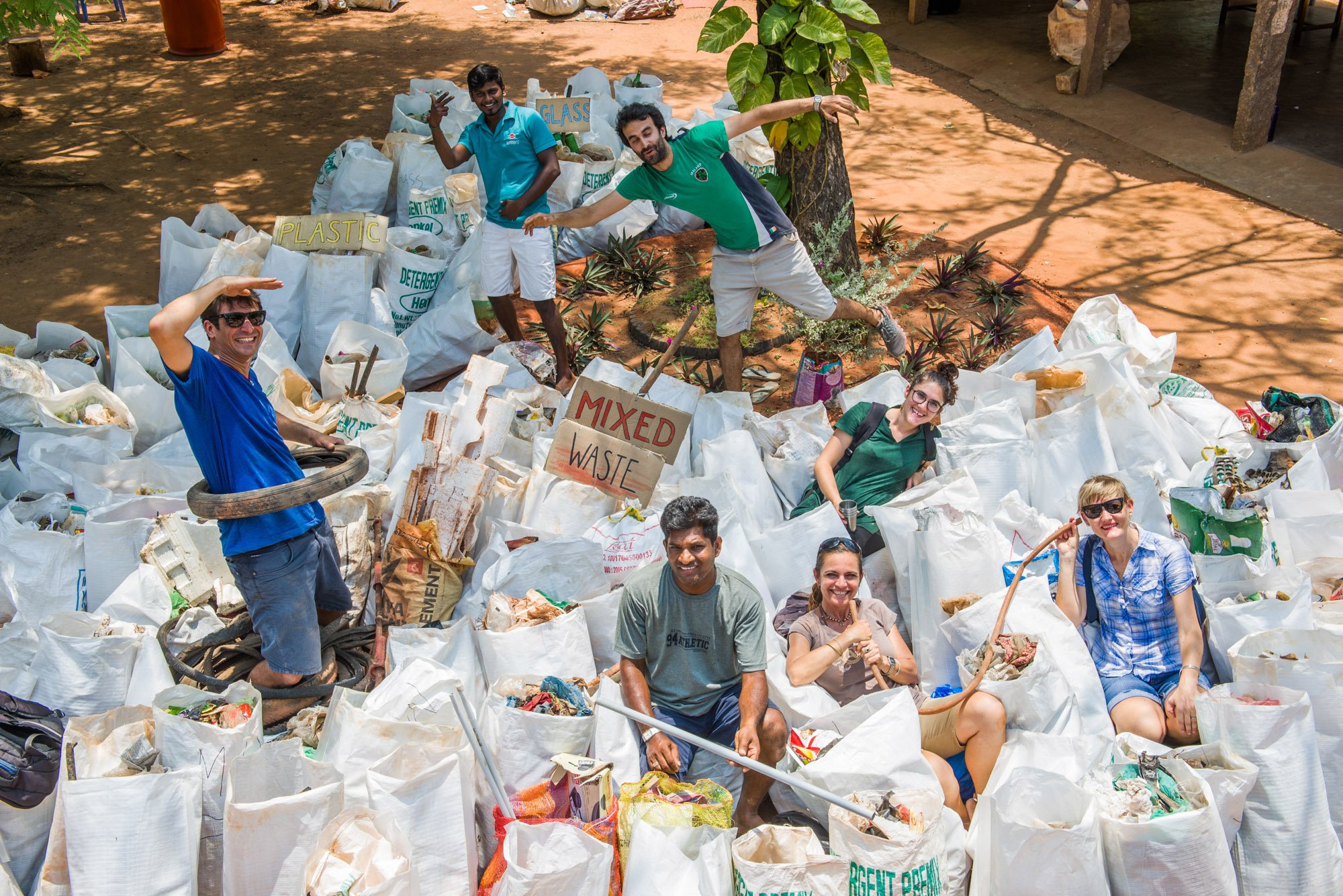
Our Story
2004 – Origins
WasteLess traces back to 2004 when Chandrah, returning from the Netherlands to Auroville, joined the 'Tsunami Relief Team'. Witnessing the devastation, she noticed the alarming accumulation of plastic waste in rural areas. Collaborating with local women's groups, they launched grassroot initiatives to collect and recycle waste, addressing the lack of waste management practices.
2008 – Waste in Auroville
Inspired by the work of the women, Chandrah together with a team, set out to create a model for waste management in Auroville. With a small grant and the support of the local Eco Service they conducted a waste survey discovering that the community was doing well, but due to a lack of awareness, waste management could still be improved on many levels. She decided that something had to be done.
2010 – Litter Free Auroville
Over shared lunches, Chandrah persuaded her brother Ribhu to join her in spearheading a ‘Litter Free Auroville Campaign’. Witnessing the enormity of a local burning dump, Ribhu recognised the urgency for change. Initially struggling to engage adults, they redirected their efforts towards Auroville’s schools, aiming to inspire children. Their campaign featured an art exhibition, the famous ‘Trashion Show ', concerts, and a puppet show, all made out of and inspired by waste. Over 1500 people in the Auroville community came together to collect litter, filling over 580 bags. Chandrah and Ribhu sorted the collected waste over a period of 10 days, realising that Auroville was litter free – for about a week. Although the event had been appreciated by everyone involved, the garbage started quickly piling up again.
Shortly after this event, the teachers and parents came knocking on their door telling Chandrah and Ribhu that the students just would not be quiet anymore when it came to the issue of waste.
So how to continue this journey of waste awareness?
2012 – Garbology 101
With the support of Vimal and Martin from Auroville Consulting, the idea of an educational curriculum on waste was born: Garbology 101. Researching the latest science on waste published in the global north and translating and bridging it for classrooms in Auroville was WasteLess’s first project. The project soon gained traction nationwide. As students grasped the concepts, they advocated for practical solutions on their campuses. Responding to their enthusiasm, WasteLess conducted waste audits in schools, empowering students to make choices by providing waste separation, setting up composting areas and introducing reusable alternatives wherever possible.
2014 – Pick it Up
Next in line was the development of Pick it Up, a card game addressing the issue of waste separation and its value, that the team envisioned could be played by children all over India. Distributed through commercial sales, the WasteLess team felt it did not generate the impact they were hoping for. Ribhu and Chandrah were not sales people, they were passionate educationalists at heart. They understood that meaningful behavioural change required more than just a game —it needed tangible experiences that resonated with children, making the children feel seen and valued. To achieve this, they needed to discover new angles on how to create embodied learning experiences that would truly inspire change.
2018/19 – kNOw PLASTICS &
Tamil Nadu Government
In 2018, a mentor who had witnessed the impact of the educational programmes, connected the team with the Tamil Nadu School Education Department. After countless proposals, revisions and re-revisions of parts of Garbology, Pick it Up and kNOw PLASTICS (a memory game which grew out of one Garbology activity) were integrated in the Tamil Nadu State Government student textbooks. These textbooks are still in circulation today, reaching millions of students every year.
2023 – Sea Change
From the curiosity about life in the ocean observed during several kNOw PLASTICS lessons, WasteLess followed the hearts of the students and set out to design Sea Change in 2020. This curriculum addressed the issue of microplastics in the ocean. With the support of the National Geographic Society, the educational programme is at the forefront of education on how the microplastics cycle affects our environment as well as our health and well-being.
2023 – Fresh Water
Witnessing ‘Day 0’ in South Africa, the day municipal water supplies ran out entirely, and realising that India will be one of the most affected countries in terms of water scarcity in the very near future, Ribhu and Chandrah set out to confront another emerging environmental crisis. The WasteLess team is currently engaged in developing an innovative educational curriculum on the topic of fresh water with the aim to educate and inspire students across the nation.




